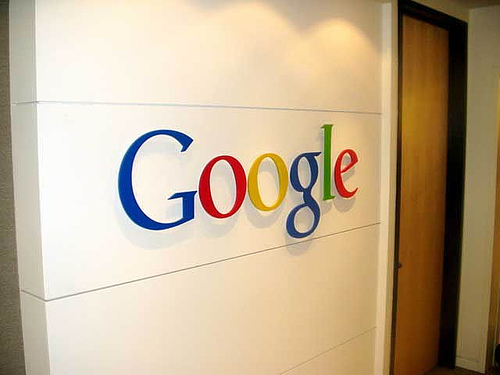Google is disputing a New York Times report that the company is close to a private deal with Verizon in which Google could pay Verizon to ensure that its content received priority in reaching web users.
The potential deal between Google and Verizon has been widely reported, but the companies are taking exception to what they see as the Times‘ depiction of it as a financial agreement.
“The New York Times is quite simply wrong,” Google spokesperson Mistique Cano told TPM in an email. “We have not had any conversations with Verizon about paying for carriage of Google or YouTube traffic.”
“We remain as committed as we always have been to an open Internet,” she said.
Google Public Policy’s twitter feed had tweeted a similar statement earlier in the day. “@NYTimes is wrong. We’ve not had any convos with VZN about paying for carriage of our traffic. We remain committed to an open internet.”
Verizon released a statement along the same lines on it’s Policy Blog:
The NYT article regarding conversations between Google and Verizon is mistaken. It fundamentally misunderstands our purpose. As we said in our earlier FCC filing, our goal is an Internet policy framework that ensures openness and accountability, and incorporates specific FCC authority, while maintaining investment and innovation. To suggest this is a business arrangement between our companies is entirely incorrect.
The Times is standing by its story, according to Wired:
“We stand by our reporting which is based on information from sources in a position to know about the conversations,” said Times spokeswoman Diane McNulty. “Google’s comment about The New York Times story refutes something The Times story didn’t say.”
Meanwhile, the Wall Street Journal reports that the FCC has called off closed-door talks on Net Neutrality with industry lobbyists.
FCC Chief of Staff Edward Lazarus, in a statement, said the effort “has been productive on several fronts, but has not generated a robust framework to preserve the openness and freedom of the Internet.” He added, “all options remain on the table as we continue to seek broad input on this vital issue.”
An agreement between Google and Verizon as reported by the Times would deal a blow to Net Neutrality advocates, who maintain that no content should be favored over any other on the web. An April court decision undercut the FCC’s ability to enforce any such neutrality, and the agency has since been looking at other ways of establishing regulations for the Internet.










